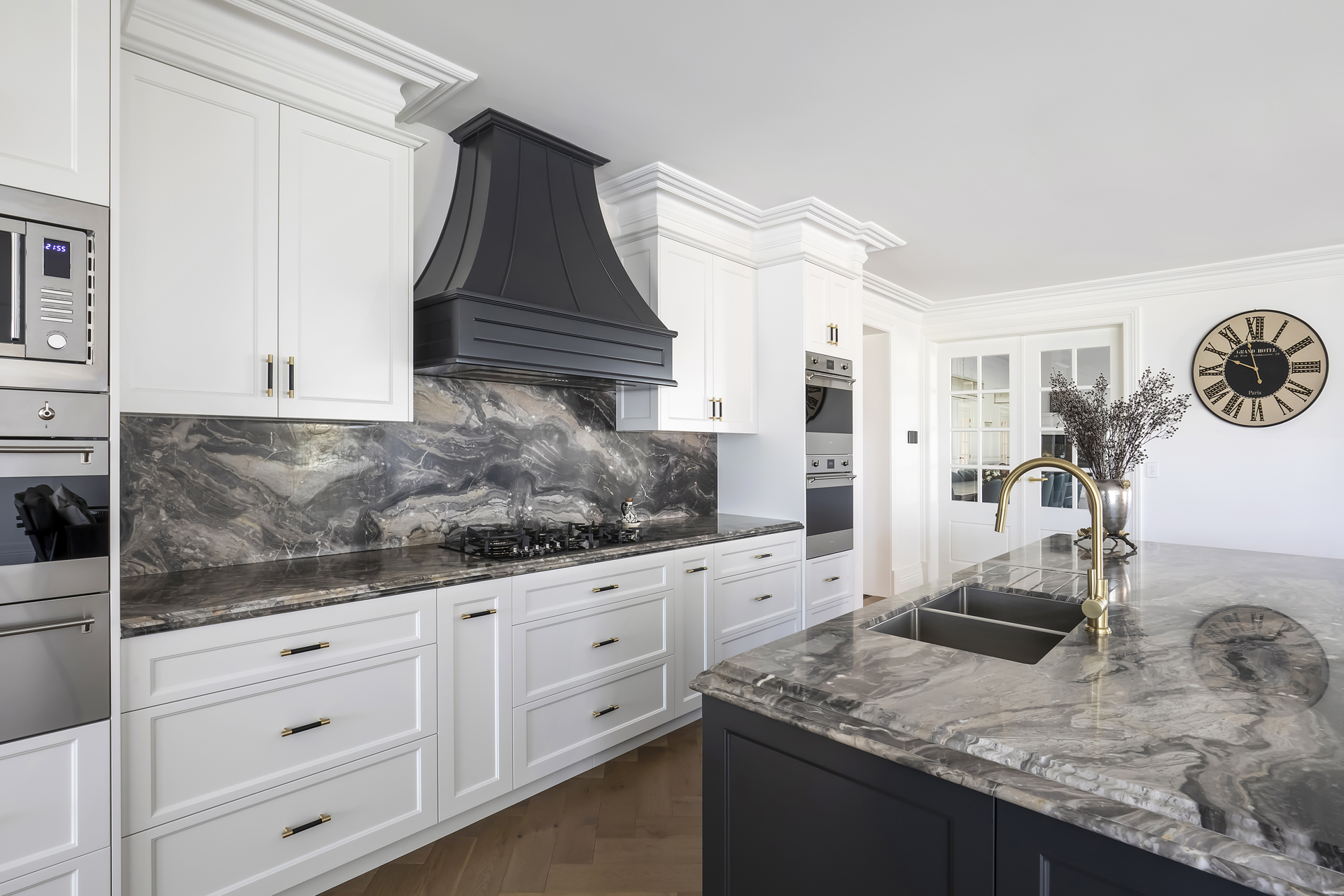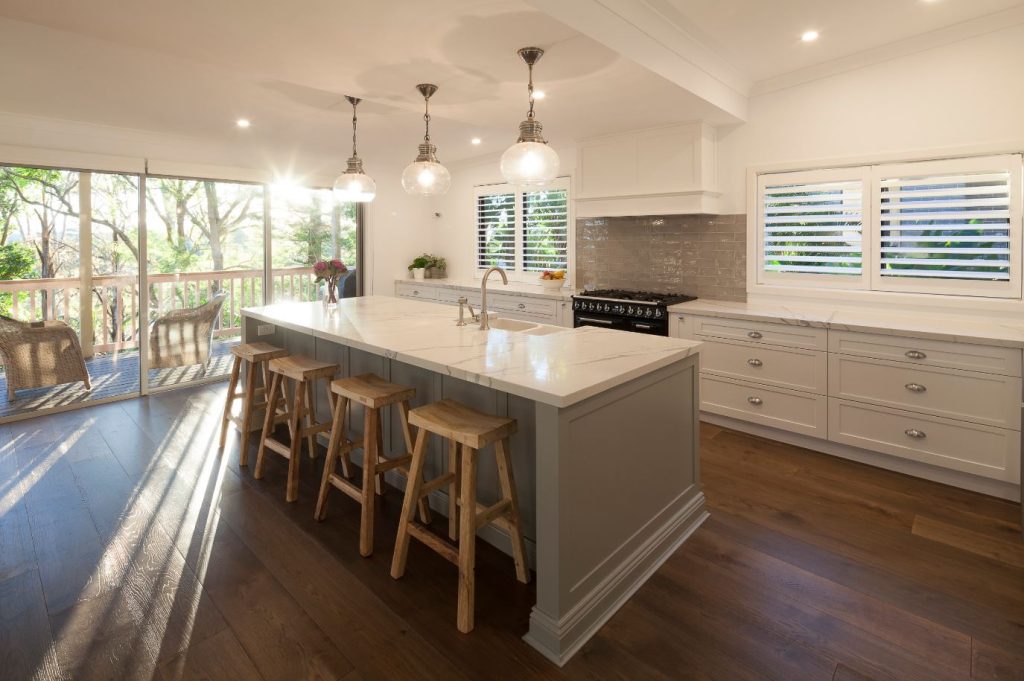
Engineered Stone Benchtop
Engineered Stone
– Engineered stone is a composite material made of crushed quartz and adhesive polymer resin.
– It is available in a variety of styles, including flat colors, natural-like stones, and other artistic finishes.
– Most brands stock their slabs at a standard thickness of 20mm, but 30mm and 12mm thicknesses are also available.
– The standard size of the slabs for most brands is 3,040 x 1,440mm. Larger sizes in a Jumbo format (1,580 x 3,200mm) are also available.
– Engineered stones are priced from middle to high, depending on the brand and style of slab.
– The standard polished surface is easy to maintain and requires no ongoing maintenance.
Pros: include non-porous, resistant to scratches and stains, easy to clean, and can reproduce natural stone well.
Cons: include visible grout joins when joining pieces together, chipping along exposed edges, and long exposure to high heat leaving a mark. Honed or matt surfaces are also harder to clean.
Manufacturers
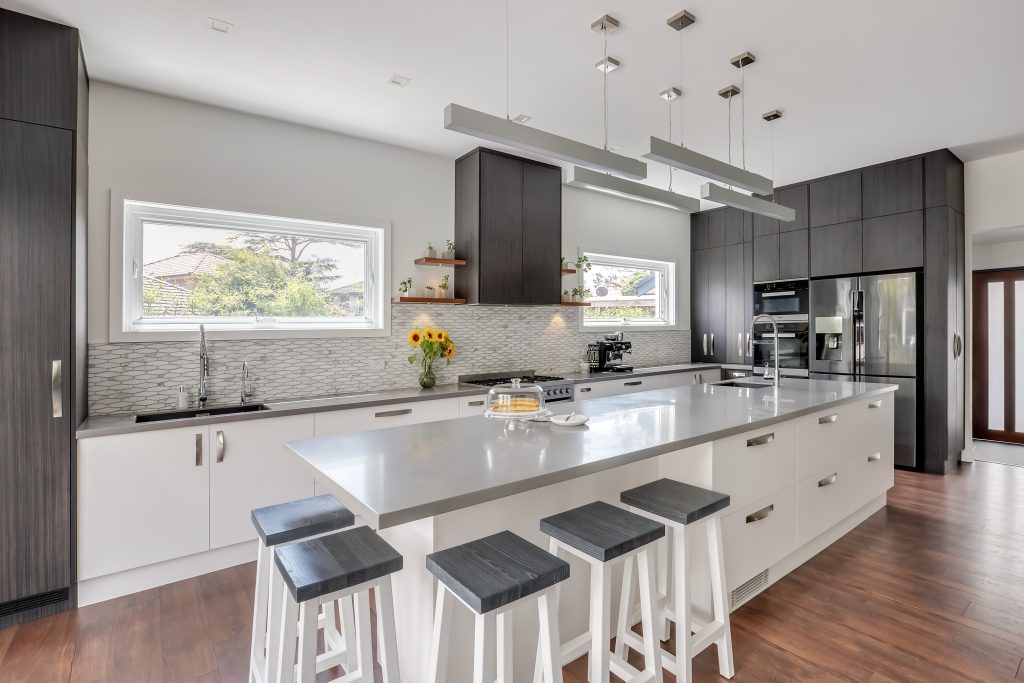
Solid Surface Benchtop
Solid surface
– Solid surfaces are acrylic-based materials used in commercial and domestic settings
– Corian® is the most commonly used brand and is available in slabs of various sizes
– It has some unique advantages, such as being weldable, thermoformable, warm to touch, and backlit
– It’s easy to clean and maintain, but scratches over time (can be repolished)
– Prices are mid to high, similar to more expensive engineered stones
Pros: include seamless construction, easy fabrication, UV stability for some colours, non-porous and hygienic, no sealing, stain resistant, able to be repaired, and more
Cons: include susceptibility to damage from heat and abrasions, and not as natural looking as engineered stone.
Manufacturers
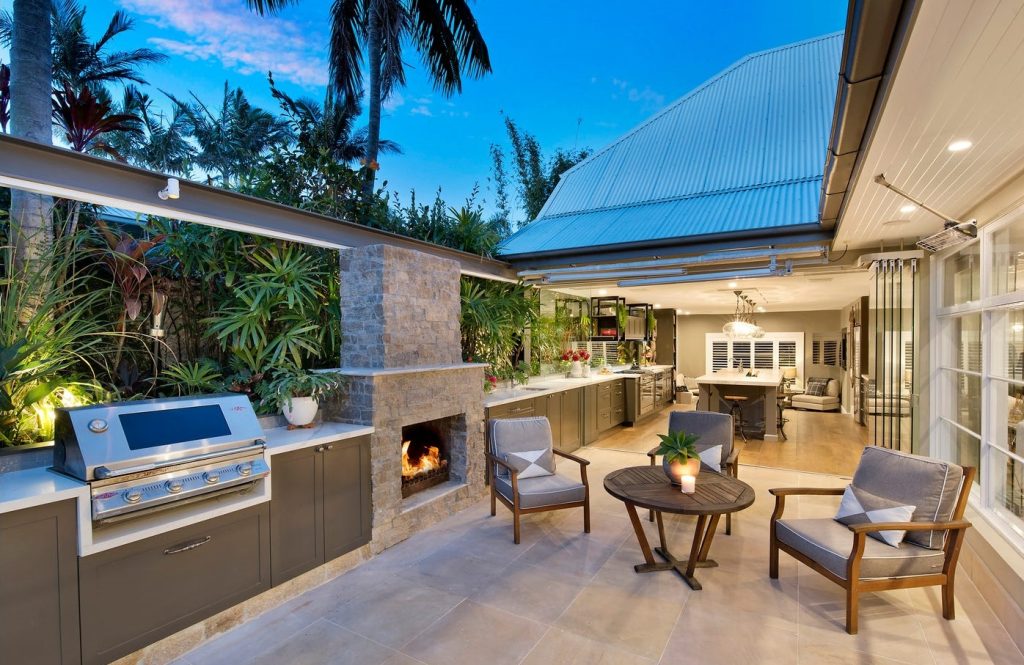
Porcelain Benchtop
Porcelain/Compact Sintered Surface Benchtops
– Porcelain benchtops are a newer option for kitchens made of powdered clay and colored pigments
– They resist heat, UV fading, staining, and scratching, and can look like timber, concrete, rusted steel, and marble
– Slabs are available in large sizes up to 3,200 x 1,500 x 12mm
– Porcelain is easy to clean and maintain, but brittle and susceptible to chips and cracks
– It is priced at the higher end, competing with granite and marble
Pros: include resistance to stains, heat, and scratches, and a wide variety of colors and designs, can be used for outdoors.
Cons: include the need for full support, difficulty in repair and fabrication, and limited depth of surface pattern.
Manufacturers
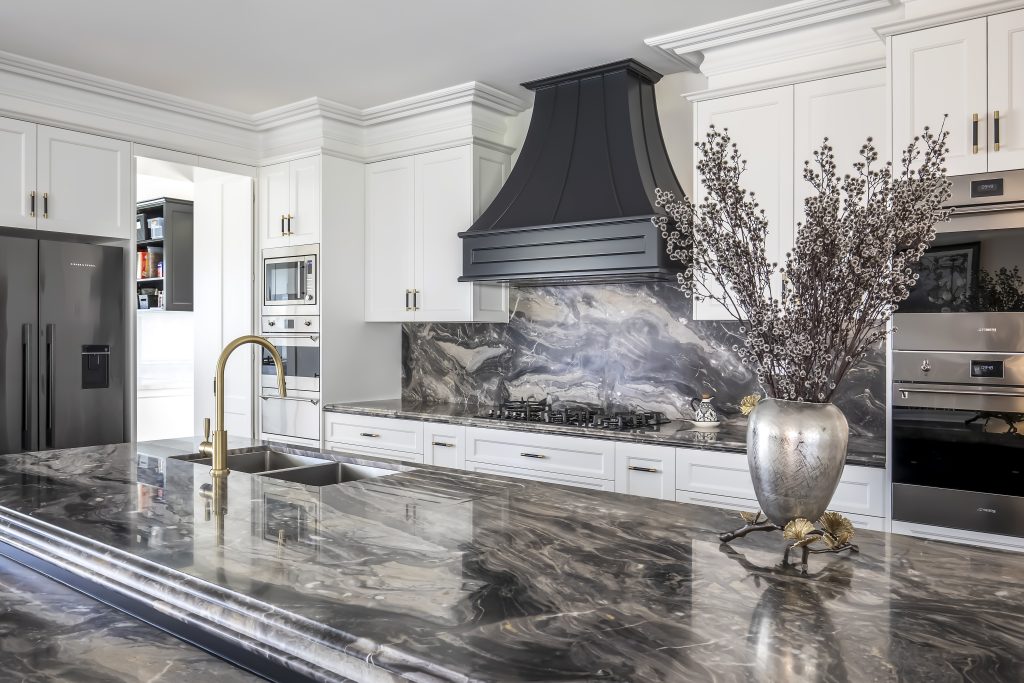
Marble Benchtop
Marble Benchtop
– Marble is a natural stone known for prestige, uniqueness, and beauty
– Marble benchtops are the stone of choice for many luxury kitchens
– Marble is a metamorphic limestone, quarried from hillsides with much of the best slabs coming from Italy
– Slabs of marble come in irregular shapes and sizes, with standard thicknesses of 20mm and 30mm
– Marble is priced at the high end of the market, with different marbles priced higher or lower depending on scarcity, grade, and demand
Pros: include its elegant aesthetic, uniqueness, and association with art and beauty
Cons: include its requirement for sealing and resealing, susceptibility to chipping, cracking, staining, and marking, and difficulty in finding similar-looking slabs when multiple slabs are needed.
A few suppliers as there are many
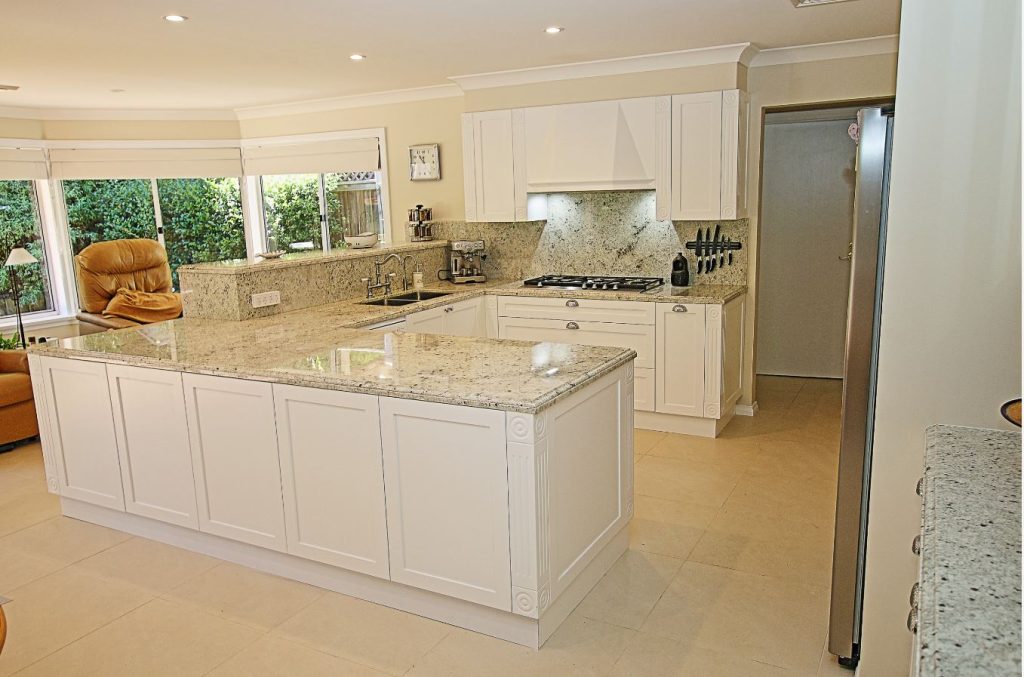
Granite Benchtop
Granite Benchtops
– Granite is a naturally occurring coarse type of igneous rock with large visible grains
– It is composed mainly of quartz and feldspar with small amounts of other minerals
– It is incredibly strong in compression and comes in many different types with great differences in grain patterning and colour
– Most granite slabs are irregularly shaped and share similar overall sizes to marble, with standard slab thicknesses of 20mm and 30mm
– Granite is easy to keep clean and maintain and is scratch, stain, heat, and chemically resistant
– Pricing varies widely and is dictated by the quality and beauty of the stone
Pros: include unique appearance, large variety of colours, easy to clean, and edges that can be mitred successfully
Cons: include susceptibility to staining when not sealed, varying density and coldness to the touch, and difficulty in getting similar looking slabs when multiple are needed.
A few suppliers as there are many
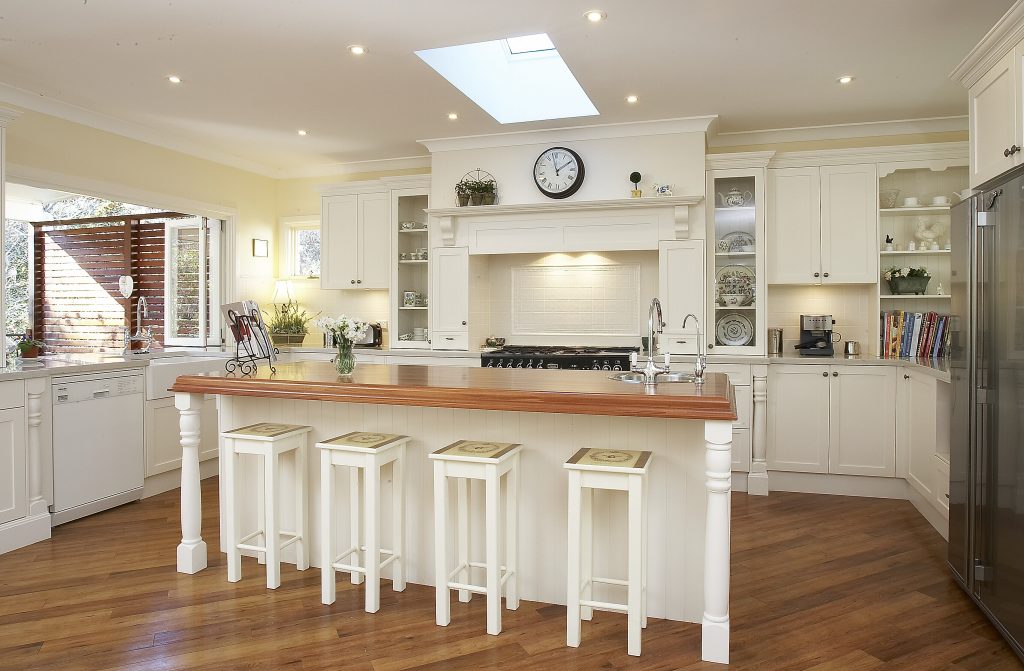
Timber Benchtop
Timber Benchtop
– Solid timber benchtops are made of large pieces of timber glued together
– They are custom made to size, with some pre-made options available
– Timber is a warm and inviting material that comes in many species
– They are susceptible to scratches, dents, staining, and burn marks
– Regular maintenance is required to preserve appearance
– Their price point ranges from mid to high, depending on the type of timber used
Pros: include being environmentally friendly, unique in appearance, and suitable for both modern and traditional kitchens
Cons: include susceptibility to heat and water damage, as well as denting in softer species of timber.
Manufacturers
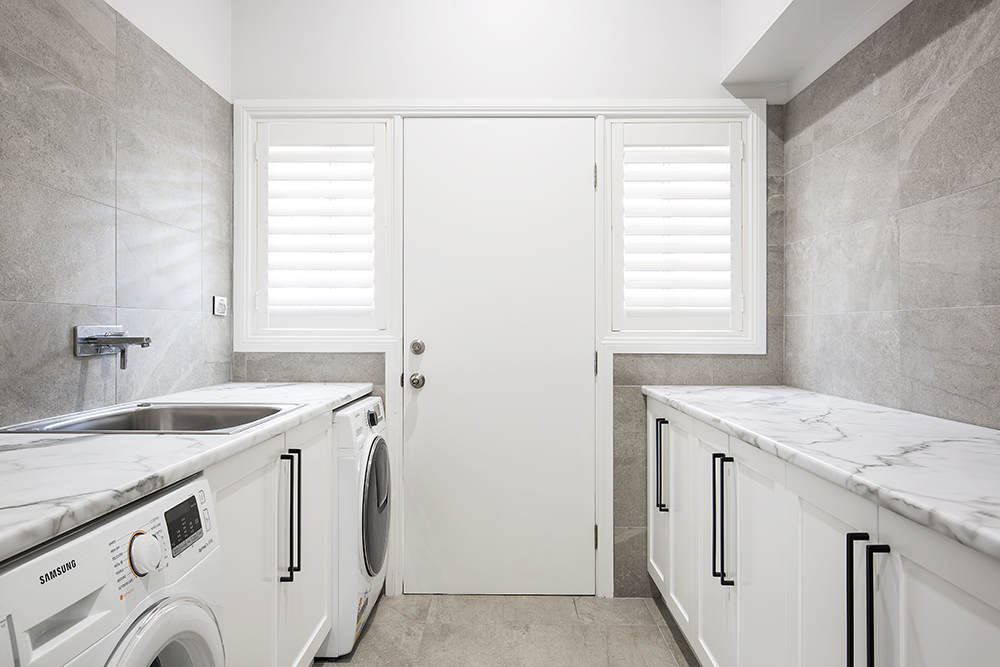
Laminate Benchtop
Laminate Benchtop
– Laminate is a popular benchtop material, made from decorative paper impregnated with melamine resin and bonded onto a wooden substrate
– It can recreate a range of designs but the success can be hit and miss
– Preformed laminate benchtop slabs come in various sizes, can be cut to size on site
– The melamine surface is stain-resistant, but can scratch and be damaged by heat or impacts causing dents and swelling
– Laminates are priced at the lower end of the market, making them a cost-effective option
Pros: include easy to clean, lots of colours and styles available
Cons: include heat damage, impacts and scratches can damage the surface, repairs are difficult
Manufacturers
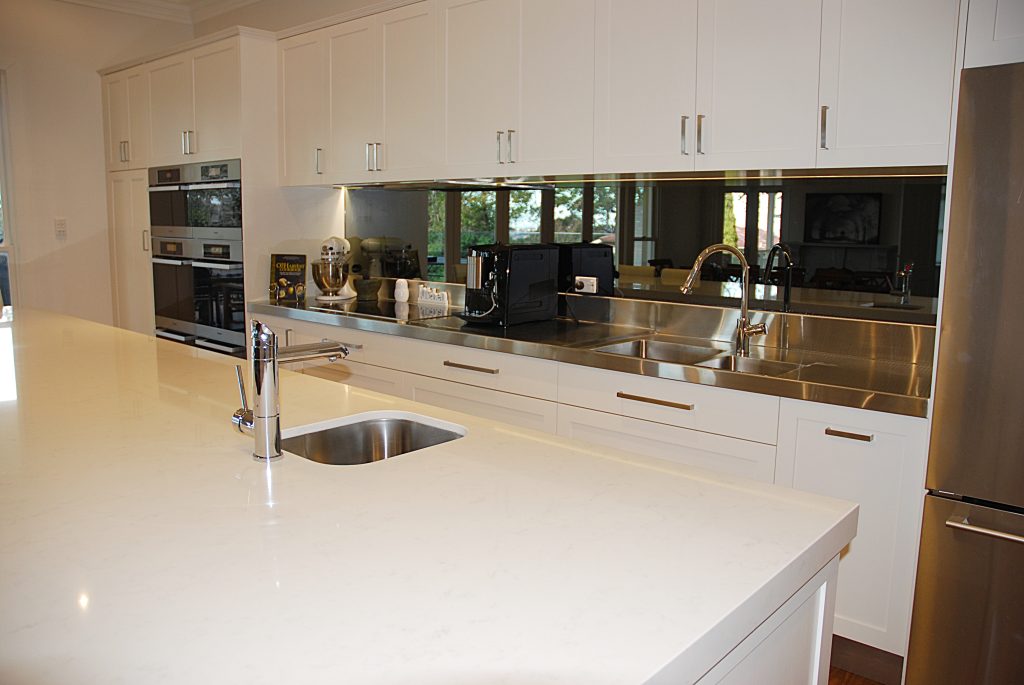
Stainless Steel Benchtop
Stainless Steel Benchtop
– Stainless steel benchtops are made of thin sheets that are bent, welded and glued to a timber substrate
– They are popular in commercial and domestic kitchens due to their durability, stain and chemical resistance and ease of cleaning
– Comes in various sheet sizes and thicknesses, typically using 304 grade 1.5mm sheet glued to a pre-fabricated timber substrate
– Mid to high price range depending on the skill of the fabricator and number of welded in sinks or cooktops
Pros: include able to withstand heat, easy to clean, no seams, stain and chemical resistant, able to be fabricated into many shapes, well suited to industrial look kitchens
Cons: include susceptible to dents and scratches, noticeable fingerprints and smudges, hard to fabricate, specific cleaner needed for maintenance
Thank you for reading our guide on kitchen benchtops! At The Renovation Broker, we prioritize educating our clients on all aspects of kitchen design. If you are currently researching for your own kitchen renovation, we encourage you to consider our services. Speak directly with one of our expert designers by calling our design studio and make an appointment to visit our showroom to see our work firsthand. Let us help you create the kitchen of your dreams.




